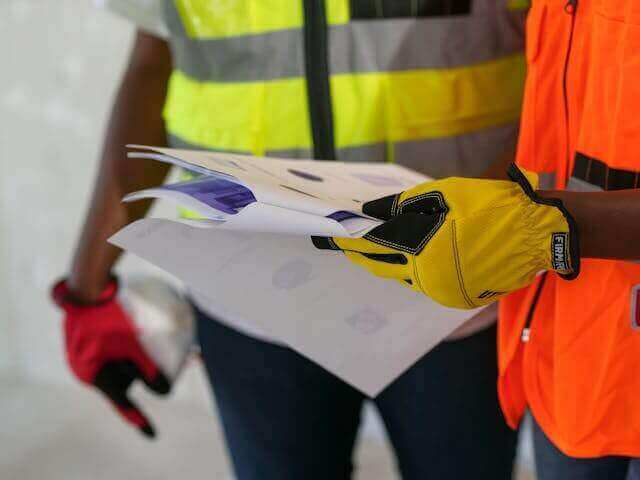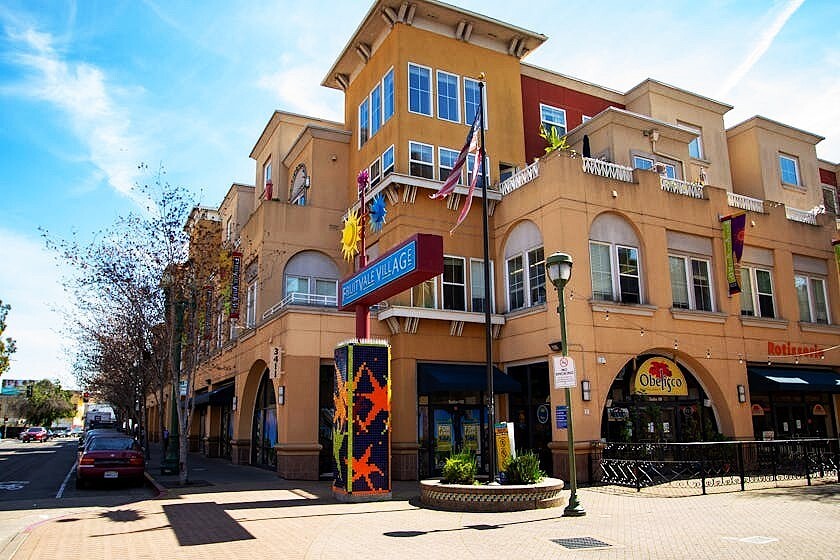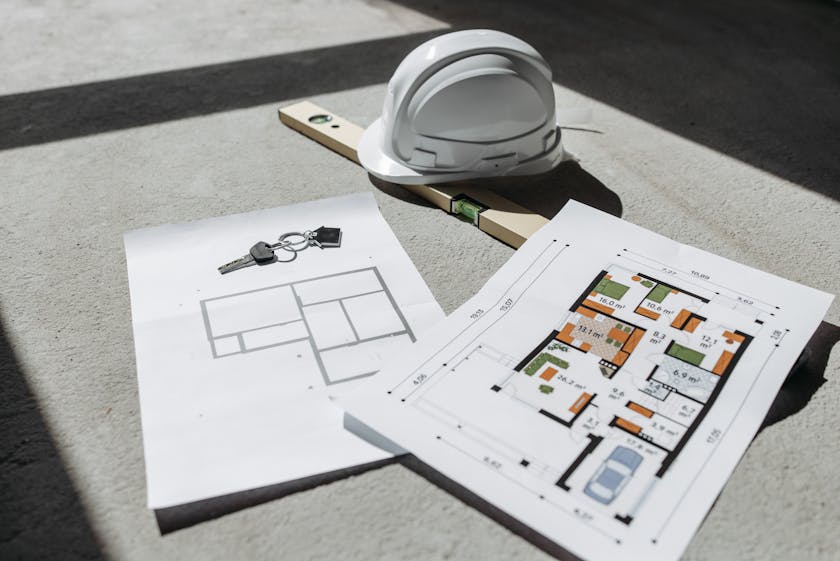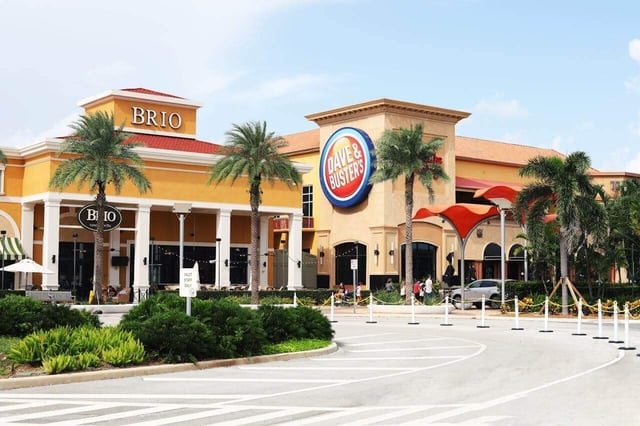Introducing The Right Way To Do Due Diligence For Retail Properties
February 13th, 2025
6 min read

Due diligence in retail real estate involves thoroughly assessing both the financial/legal aspects (leases, income, market, compliance) and the physical/structural aspects (building systems, environmental risks, maintenance) before making a purchase. This comprehensive review helps identify hidden costs and risks, enabling you to protect your investment and avoid unexpected liabilities.
Before you commit to a retail investment, it pays to know exactly what you’re walking into.
Investing in shopping centers can offer substantial returns, but ensuring your investment is in capable hands is critical. One of the most important indicators of an experienced and competent sponsor is their approach to due diligence—a comprehensive examination of the property’s financial, legal, and physical condition.
Due diligence is particularly complex for shopping centers due to shared spaces, diverse tenant mixes, and the operational dependencies on tenant performance. An effective sponsor will conduct meticulous due diligence to uncover risks, ensure compliance, and align a property's performance with investment goals.
As an investor, knowing what to expect from your sponsor's due diligence process helps you gauge their expertise and the security of your capital.
In this guide, we'll outline the essential components of due diligence, including regular due diligence (focused on financial and legal reviews) and physical due diligence (covering structural, mechanical, and environmental inspections). By the end, you'll have a clear understanding of what an experienced sponsor should be doing to protect and grow your investment.
What is Due Diligence in Commercial Real Estate?
In commercial real estate, due diligence is the process of verifying the property’s condition, performance, and compliance with regulations to ensure it meets your investment criteria.
Imagine you're about to purchase a sophisticated, high-performance machine worth millions of dollars. Would you simply trust the seller's word about its condition? Of course not. You'd want a team of expert mechanics to:
- Inspect every component carefully
- Run diagnostic tests
- Check its maintenance history
- Evaluate its potential future performance
- Uncover any hidden damages or risks
Due diligence for shopping centers works similarly. You're not just looking at the surface-level appearance, but diving deep to understand:
- Financial health (like checking the machine's performance metrics)
- Structural integrity (equivalent to examining the machine's core components)
- Legal compliance (similar to ensuring the machine meets all safety and operational standards)
- Environmental risks (like checking for potential internal corrosion or hazardous materials)
As an investor, ensuring that your sponsor conducts the correct due diligence processes can protect you from investing in a project that may have costly surprises, hidden liabilities, and potential financial losses.
Why Due Diligence Matters for Shopping Centers
Due diligence is especially critical for shopping centers, as they involve shared spaces, diverse tenants, and often require large capital expenditures for maintenance or upgrades.
Due diligence is crucial for landlords in three distinct areas:
- Financial Accuracy: verifies that income, expenses, and tenant leases are accurate and sustainable.
- Risk Mitigation: identifies potential liabilities like structural issues, legal disputes, or environmental hazards.
- Informed Decision-Making: enables investors and landlords to renegotiate terms and budget for repairs, or sometimes, walk away if risks outweigh rewards.
For shopping centers, this process is crucial due to their complexity. Issues like tenant turnover, maintenance of shared spaces, and compliance with accessibility laws can significantly impact returns.
"Regular" Due Diligence (Financial and Legal)
Standard due diligence focuses on understanding the property's financial performance and ensuring it meets all legal requirements. This involves verifying the documentation and income streams associated with the property. For shopping center investors, this process helps confirm the property's value and identify any risks that could impact its performance.
Key Areas of Due Diligence
1. Lease Review
Leases are the lifeblood of a shopping center because they dictate rental income, tenant obligations, and operational flexibility. Carefully reviewing each tenant’s lease agreements helps you understand:
- Income Stability: Long-term leases with reputable tenants ensure consistent cash flow, while short-term leases or vacancies could signal volatility.
- Termination Clauses: Some leases permit tenants to terminate early under specific conditions, such as a co-tenancy clause that allows a tenant to leave if another major tenant vacates.
- Rent Escalations: By checking if leases include annual rent increases, you can understand if the property’s income will increase over time.
Suppose an anchor tenant (the property’s largest revenue source), has an early termination clause that could leave a significant vacancy. Identifying this risk allows you to renegotiate the price or plan for alternative leasing strategies.
2. Financial Analysis
A thorough review of the property’s income and expenses helps confirm the Net Operating Income (NOI) and overall financial health of the investment. Key tasks include:
- Verifying Rent Roll: Compare the reported rent roll to tenant leases to ensure all income is accurately reflected.
- Scrutinizing Expenses: Review operating costs, including property management fees, maintenance expenses, insurance, and taxes, to identify inefficiencies or unexpected trends.
- Projecting Future Cash Flow: Based on current leases, you can calculate how income might change in the coming years as leases expire or rents escalate.
If the seller reports low operating expenses, but your analysis reveals deferred maintenance or rising taxes, this could impact future cash flow and investment returns.
3. Market and Competitive Analysis
Shopping centers rely on strong local demand and competitive positioning. A market analysis provides context for how the property fits into the surrounding area:
- Demographic Trends: Evaluate population growth, income levels, and spending patterns to confirm sustainable tenant demand.
- Competitive Landscape: Identify competing shopping centers nearby and assess their tenant mix, occupancy rates, and conditions to understand the property’s competitive edge (or lack thereof).
If nearby centers are newer or better maintained, you may need to budget for upgrades to keep tenants and customers engaged.
4. Legal Compliance
Verify the property meets all local, state, and federal requirements to avoid fines or operational setbacks:
- Zoning Laws: Ensure the property’s current use is permitted under local zoning ordinances.
- Title Search: Verify for liens, easements, or encumbrances that may affect ownership or future development plans.
- Permits and Licenses: Confirm all necessary permits for signage, occupancy, or building modifications are in place.
Discovering zoning issues, such as unapproved land uses, after closing could lead to costly legal battles or force you to stop certain operations.
Physical Due Diligence: Structural, Mechanical, and Environmental Investigation
Physical due diligence examines the tangible aspects of the property, identifying maintenance needs, structural issues, and environmental risks. Shopping centers often involve shared infrastructure—such as parking lots, roofs, HVAC systems, and landscaping—that can be expensive to repair or replace.
Key Areas of Physical Due Diligence
1. Property Walkthrough and Structural Inspection
A thorough walkthrough is the first step to identifying visible issues. Structural elements to inspect include:
- Parking Lots: Check for cracks, potholes, faded striping, or poor drainage. Parking lots must also meet ADA (Americans with Disabilities Act) compliance for accessible spaces and ramps.
- Roofs: Inspect flat or pitched roofs for pooling water, leaks, and signs of wear. Shopping centers often have large roofing areas that require significant capital to maintain.
- Building Facades: Look for cracks, peeling paint, or damaged signage that could deter customers and hurt tenant retention.
- Common Areas: Evaluate landscaping, sidewalks, lighting, and amenities like benches or seating areas to ensure they are safe, functional, and visually appealing.
Deferred maintenance in any of these areas can impact tenant satisfaction and potentially lead to safety hazards and liabilities for you as the property owner.
2. Inspection of Building Systems
The mechanical systems of a shopping center must be in good condition to ensure tenants can operate effectively. Focus on:
- HVAC Systems: Determine the age, capacity, and efficiency of heating and cooling systems. Replacing HVAC units can cost tens of thousands of dollars, so understanding their lifespan is critical.
- Plumbing: Checks for leaks, outdated pipes, or drainage problems that could disrupt tenant operations.
- Electrical Systems: Inspect wiring, power capacity, and load management to ensure the property can handle current and future tenant needs.
A failing HVAC system or outdated electrical infrastructure could prevent tenants from operating efficiently, leading to frustration and potential vacancies.
3. Code and Safety Compliance
Ensure the property meets safety and accessibility requirements:
- Fire and Safety Codes: Verify that fire alarms, sprinklers, and emergency exits are operational and up to date.
- Building Permits: Check for unauthorized modifications that could lead to fines or forced changes.
4. Environmental Assessments (ESA)
Environmental issues can have serious financial and legal implications. The land beneath shopping centers may have previously hosted businesses that left behind hazardous materials, such as gas stations and auto repair shops, which can remain even after those businesses close. Even properties that look clean on the surface can harbor hidden risks, and environmental cleanup can be expensive and legally complex.
If contamination is discovered, you can negotiate a price reduction, request the seller handle remediation, purchase environmental insurance, or decide to walk away if the risks outweigh the reward. The baseline assessment for evaluating the ecological health of a property during the physical due diligence phase is typically an Environmental Site Assessment (ESA).
An Environmental Site Assessment (ESA) is a formal evaluation that identifies potential or existing environmental contamination on a property.
Conducting an ESA identifies risks such as:
- Underground storage tanks from former gas stations.
- Chemical contamination left by dry cleaners or auto repair shops.
- Asbestos, mold, or lead-based paint in older buildings.
Incorporating ESAs into your due diligence process ensures you’re fully aware of environmental liabilities before finalizing your investment. By uncovering potential hazards early, you protect yourself from costly surprises and can decide whether to proceed, renegotiate, or move on to a better opportunity.
Ensuring Your Investment is Handled Correctly
Due diligence is a cornerstone of prosperous shopping center investing, and it is critical to work with a sponsor who prioritizes this process. An experienced sponsor will conduct thorough evaluations of a property’s financial, legal, and physical condition, ensuring the investment is sound and aligned with your goals.
Understanding the critical elements of due diligence enables you to assess a sponsor’s expertise and commitment to safeguarding your capital. By familiarizing yourself with these practices, you’ll be better equipped to select a sponsor who demonstrates transparency, professionalism, and attention to detail.
Choosing a sponsor with a strong due diligence process provides confidence in their ability to mitigate risks and maximize the property’s potential. Your knowledge of what to expect ensures you’re making an informed decision, laying the groundwork for a successful and rewarding investment partnership.
Next Step for Beginning Investors
Due diligence is the best tool for evaluating a sponsor's expertise and competence. By understanding how a sponsor approaches regular due diligence, you can determine whether they possess the necessary skills and processes to protect and grow your investment.
Shopping centers are complex assets, and a sponsor who prioritizes comprehensive due diligence demonstrates their ability to mitigate risks and make informed decisions. This ensures that your capital is not only protected but also positioned to deliver sustainable, long-term value.
As an investor, knowing what to expect from a sponsor’s due diligence process empowers you to evaluate their suitability and ensure their strategy aligns with your financial goals.
The more knowledgeable you are about these topics, the better equipped you’ll be to make informed decisions, ask the right questions, and partner with the right sponsor.
Topics:


























